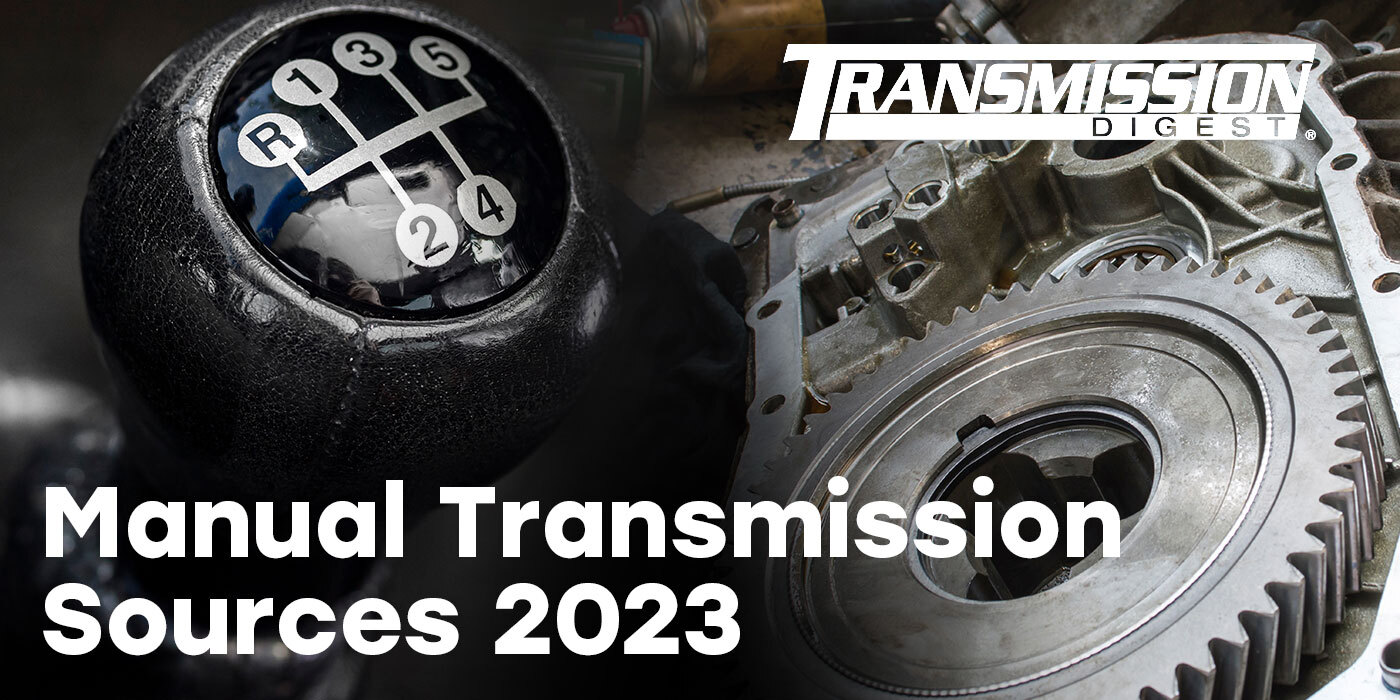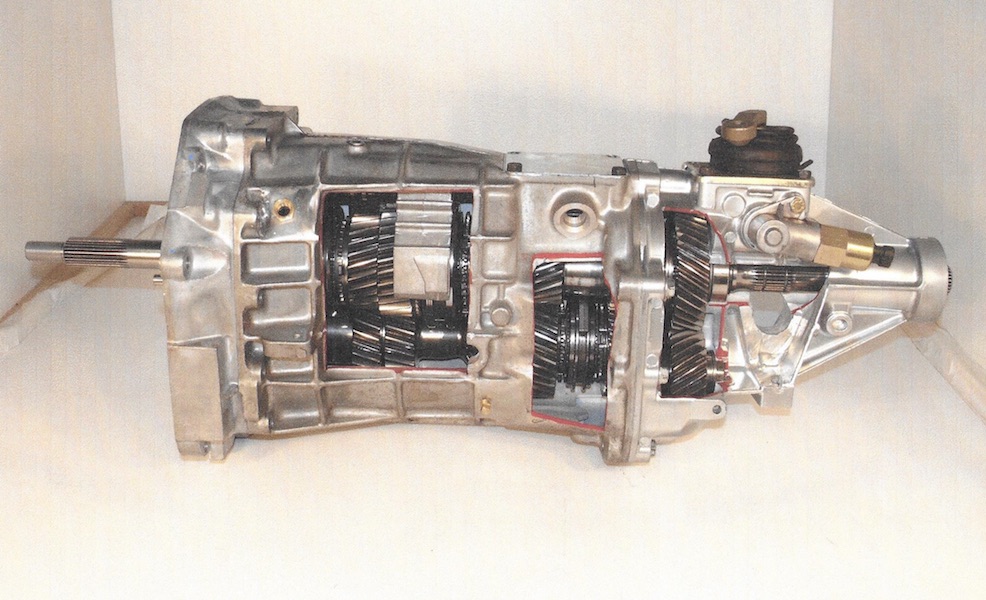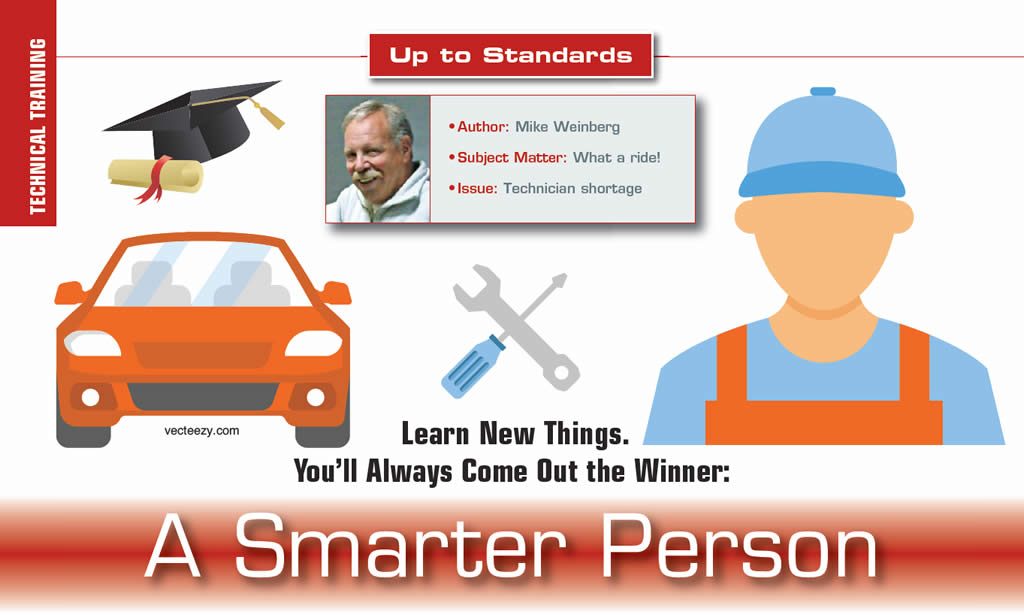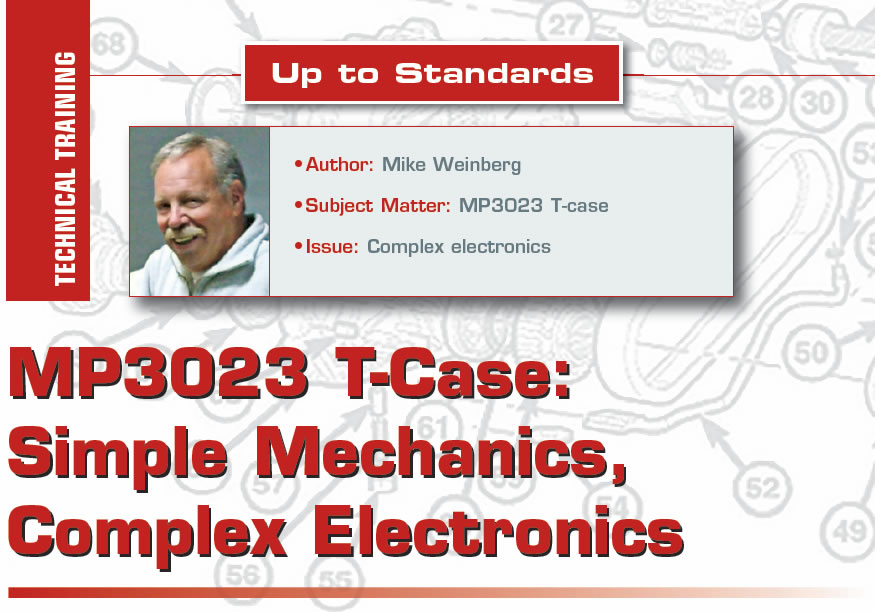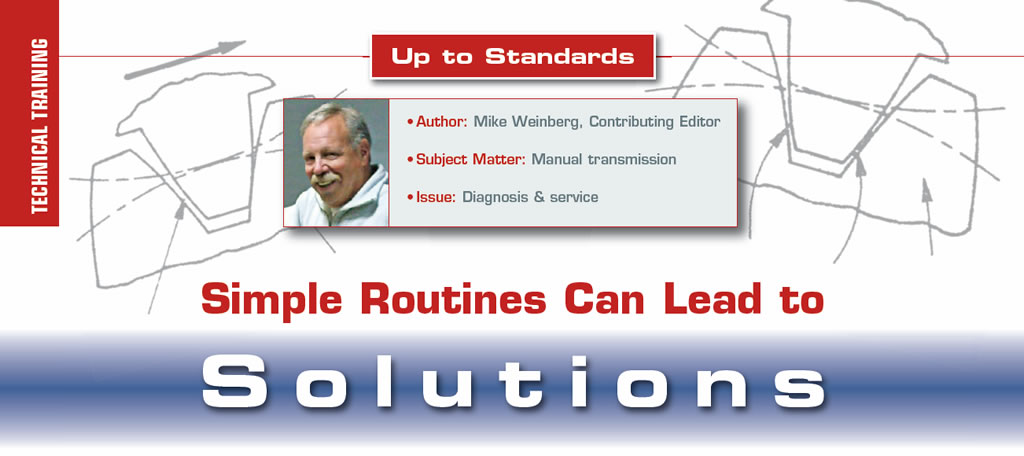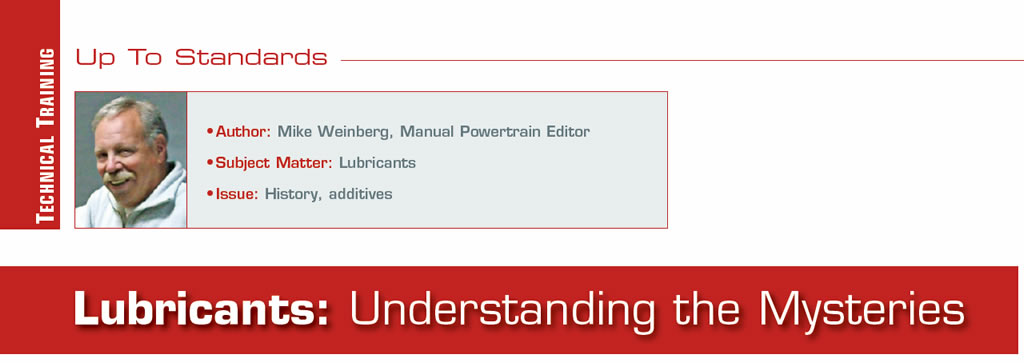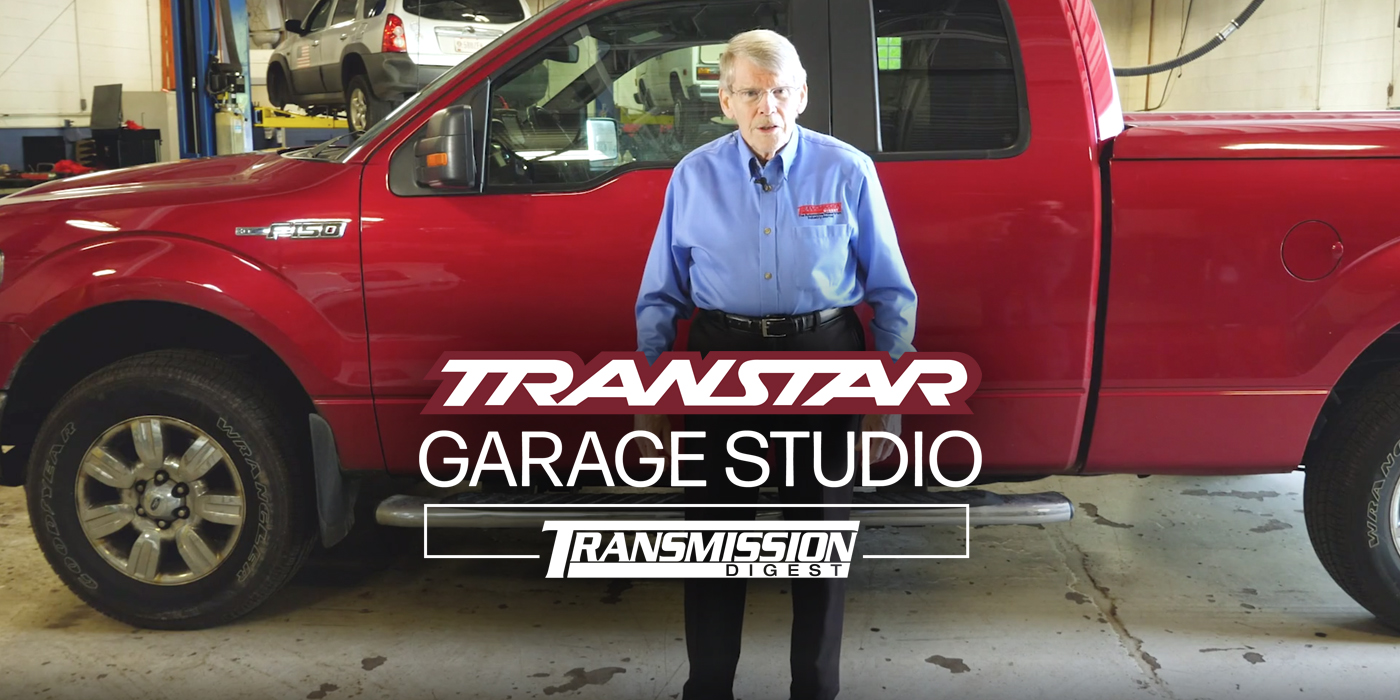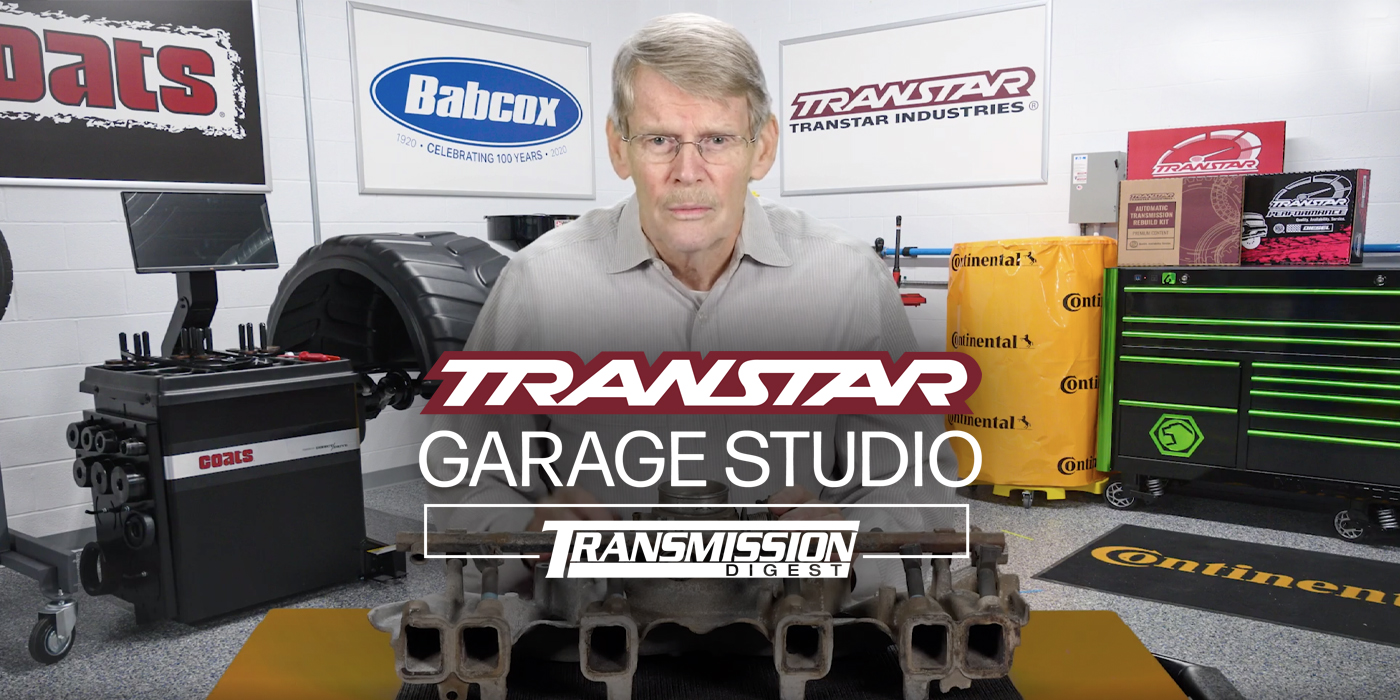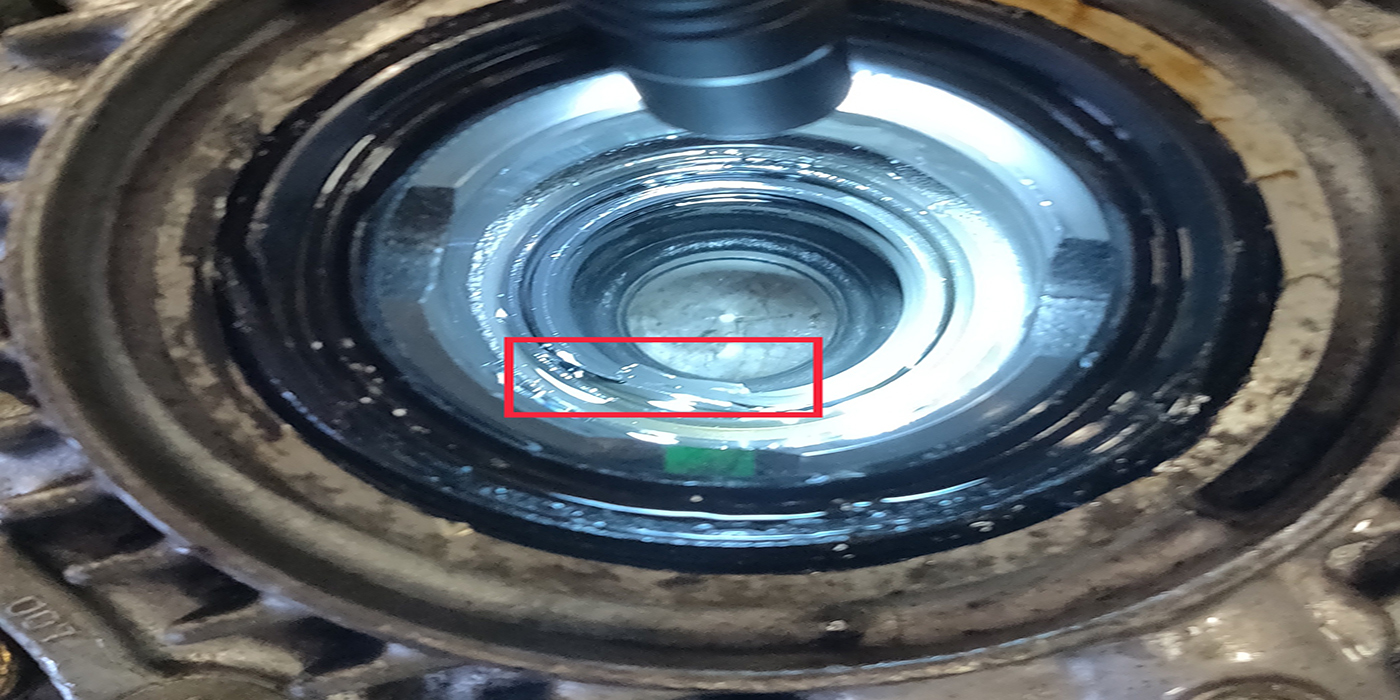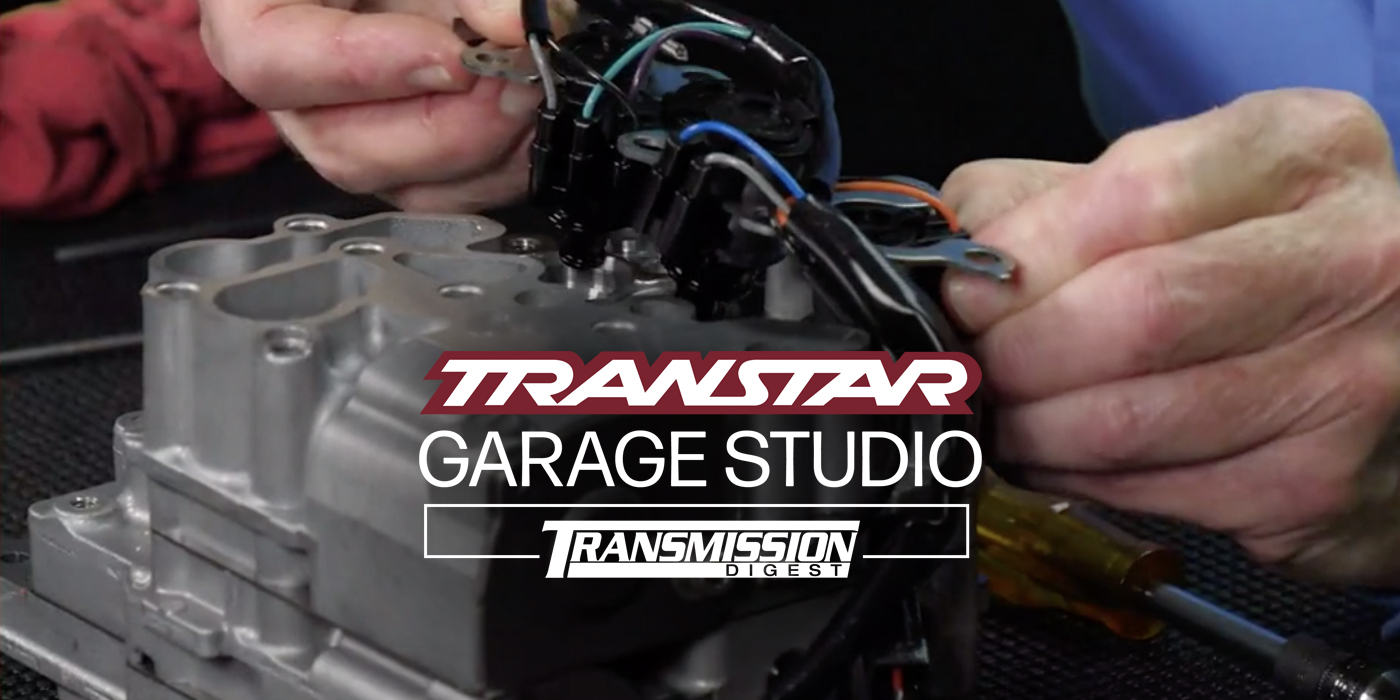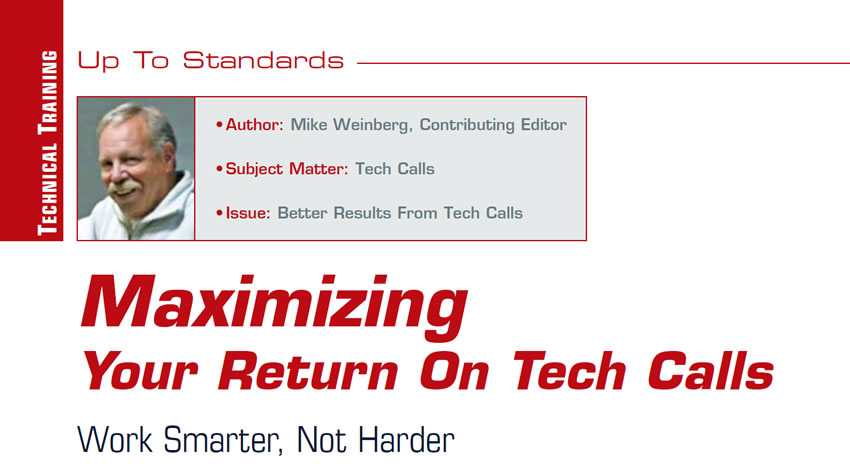
Up To Standards
- Author: Mike Weinberg, Contributing Editor
- Subject Matter: Tech Calls
- Issue: Better Results From Tech Calls
Our industry has morphed into an extremely complex diagnostic and troubleshooting environment. The current design and operation of modern vehicles has become as technical as rocket science. The relationship between the systems that interact to make the vehicle function correctly has grown to a point where even a road test can be very time consuming. Is the problem in the transmission, transfer case or rear? Are there multiple problems that affect inter connected systems or is the problem outside the transmission? To get a proper solution to a complex problem, we need to use a diagnostic routine that follows a set of protocols in a proper order that are structured to be consistent, every time without variation. Working from a consistent structure will prepare you for success without multiple phone calls and wasted time.

With late-model units that run six-speeds on sticks and six-, seven-, eight- or nine-speeds on automatics, you must have a thorough understanding of the theory of operation of all of the systems that make it all happen. Without this, there is no chance for an efficient outcome. 80% or more of the vehicles you deal with are automatics and you will therefore have to arm yourself with access to good technical help. There are a number of excellent technical resources available from companies like ATSG, ATRA, Mitchell On Demand, etc. On the stick side, tech help usually will have to come from your supplier. While there is some information available through the Internet, I would be very cautious with it–especially anything from an online forum, since much of it is shoot-from-the hip ideas posted by amateurs.
Since you will buy 80% of your parts from an automatic supplier, they also provide manual transmission parts and, as a matter of convenience, you buy the whole order from one source. The question here is, “Can your supplier help you with a technical problem after your purchase?” You can buy all the parts you need from the dealer, but when things do not come out as planned, will they help you, a competitor, solve the problem? In manual-transmission situations your supplier may be the key to technical salvation, and if they are not, find another supplier. The few dollars that make the difference between one supplier and another are not worth speaking about when they cannot help you get the vehicle back to the customer. The expertise available at the end of the phone is value added to your purchase.
We get frequent calls from people with technical problems and when we ask for an invoice number to check what parts they bought, we hear, “I didn’t buy from you, but my supplier says you have a technical hotline”. Our answer is, “We do have a technical hotline, but it is only for our customers, and we have no way of knowing what parts you were sold, or even if they are correct for your application”. Sometimes this results in zero happiness on the other end of the phone, but if your supplier can’t walk you through your problem, maybe you should find one that can.

Whatever causes you to call a technical hotline, the following routine will help you work through the problem as rapidly as possible with a positive outcome:
When the police begin to investigate a homicide, they create a “murder book” to document every detail. The first step in your investigation should be similar. Good documentation will include ALL the pertinent information regarding the vehicle, including all the basics, such as year, make and model; type of transmission; engine type and size; 2WD, 4WD or AWD; type of rear end; any part numbers or codes on the transmission; as much history on the vehicle as possible; and a detailed list of the issues you are trying to resolve. Create your own file BEFORE you ever dial the tech line so it is all at your fingertips when the tech guy begins to ask questions. Your book should include every part that was replaced, the current problem you need to fix, what steps you have already taken and a list of measurements that you have obtained (such as pressures, voltages and trouble codes) to bring the tech up-to-speed so he knows as much as you do about the problem.
Your documentation should start when you first tear down the unit with the creation of a build sheet or bill of materials. Every unit you build should have such a sheet and make lots of notes for future reference, such as endplay before the unit was disassembled, a list of every part that was replaced, any tests that you completed on the components before reassembly and any other procedures you have performed. You now have the start of proper documentation for future reference.
On parts installed, include all the part numbers so that if there is a wrong or non-performing part, you can take that up with the supplier. There is no way that you can remember all this information unless you have a hard copy for future reference. I believe in giving every unit an ID number. A simple numbering system could be the shop number for the model of unit with a build date followed by the builder’s initials or ID code. In the future, you know when it was built, by whom and the specific model.
Keep some blank paper in your book so you can take notes which you can go back to for reference and discard nothing–even if you solve the problem. Place this single incident report you created in a file labeled for this particular transmission, so you can review it in the future when the problem occurs with a similar transmission. With the quality of smartphone cameras today, you can even take pictures where necessary, and these can be forwarded to the tech or retained for future recall when needed.
We live in a society that thrives on instant gratification. People are always in a hurry for quick solutions to complex problems. The public has no idea of what it takes to rebuild a unit, they only want you to wave a magic wand at it, fix it free and get it done yesterday. Everyone is looking for that easy fix–that pill you can take that knocks 40 pounds off without any exercise or cutting back on all the junk food we eat. On top of that, they are endlessly putting out a lot of private information through social media and the Internet, eager to share with others all the boring nonsense in their lives. This presents a massive public relations problem for our industry. In the old days we had the “Three and 33 Rule”, which said that if you made a customer happy, they would tell three people, but if they were unhappy, they would tell 33 people–usually in a local gin mill. Today, people have the option of putting you down and harming your reputation worldwide–if they so choose–in minutes.

Manners and civility are going the way of the dinosaur; please do not become one of these people, which is easy to do with the pressures you face. The guy on the tech line is not the cause of your problem, though he may well be the cure, or at least give it all he can. The old saying “Don’t judge a man until you walk a mile in his shoes” is as true today as ever. The tech guy has 50 problems a day to solve besides yours. You are under pressure and unhappy with the situation. Under those circumstances, it is easy to become self-centered and emotional, even though emotion never solved a problem. The tech guy should not have to pry information out of you. You should have it all at your fingertips, saving both sides a bunch of time. Having handled tech calls since 1981 I have seen it all, the good, the bad and the ugly. A professional will act accordingly and constantly try to expand his knowledge base. A calm, reasoned approach always works better than confrontation. It is okay to disagree, but do it politely by asking smart questions, the answers to which may broaden your horizons and bring you expertise, or take you back to square-one on a friendly basis.
Courage was defined by Hemingway as “grace under pressure”. I have dealt with people who took the advice and went forward for a good fix. I have been verbally abused and told I didn’t know what I was talking about. Maybe so, but I don’t have the problem. If you are working with detailed, good information from the get-go the outcome will always be better.
Another issue that is mentioned rarely is your feedback. If the tech guy helps you solve your problem, let them know. If it didn’t, politely let them know that it didn’t work and go further. If your experience is somewhere in between, fix let them know what it was. Feedback from the field is critical to the tech guy’s learning curve.
There is no good time to stop learning and the continuous change and growth in technology means we have to keep doing our homework or leave the field. If you leave the field you will have to learn something else for sure. The grass is never greener on the other side of the fence.

Mike Weinberg is president of Rockland Standard Gear.

